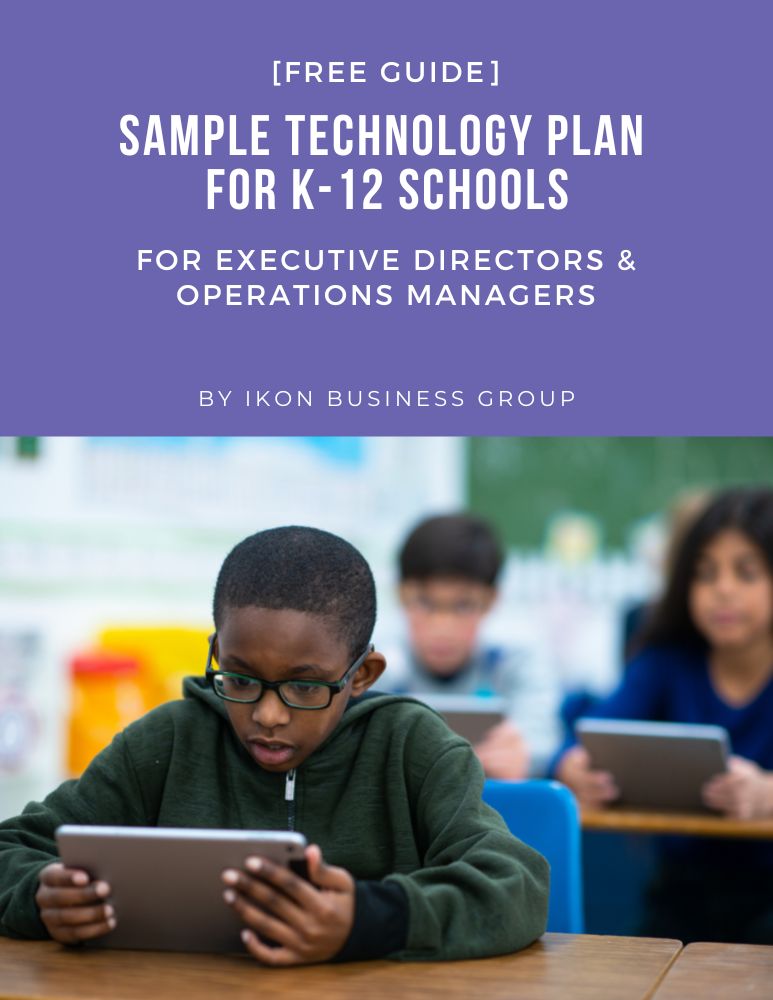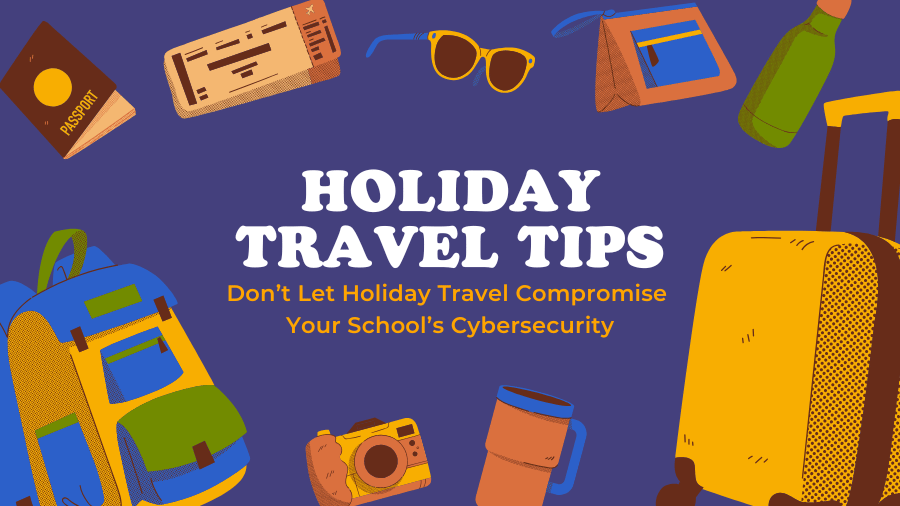With the holiday season officially upon us, travel plans are in full swing – and so are cyber threats. For educators and administrators in K-12 schools, traveling for conferences, family vacations, or school events can inadvertently expose sensitive school data and systems to hackers. A single misstep, such as connecting to public WiFi or misplacing a device, can have far-reaching consequences for your school’s cybersecurity.
At IKON EduTech Group, we understand the unique challenges K-12 schools face in protecting student and staff data. Here’s how school leaders – from Executive Directors to IT Managers and Principals – can safeguard their schools’ sensitive information during busy travel periods.
Why K-12 Schools Are a Target
Hackers often target schools because they hold valuable data, such as student records, financial information, and login credentials for critical systems. The risks are even higher during the holiday travel season when educators and staff may be less vigilant about cybersecurity.
According to World Travel Protection, only about 30% of organizations implement cybersecurity measures for employees on the go. For K-12 schools, this lack of preparation can lead to data breaches, disrupted operations, and loss of trust from parents and the community.
Pre-Travel Cybersecurity Checklist for K-12 Staff
School leaders and IT administrators can significantly reduce risks by encouraging staff to follow these steps before traveling:
- Update All Devices
Ensure laptops, tablets, and mobile devices are running the latest software to patch vulnerabilities. - Back Up Important School Data
Use secure cloud-based solutions to back up critical files, such as student records or lesson plans, in case a device is lost or stolen. - Enable Multifactor Authentication (MFA)
MFA adds a vital layer of security to school systems, making it harder for unauthorized users to gain access. - Limit Access to Sensitive Systems
Temporarily restrict access to student information systems or financial software for staff who don’t need them while traveling. - Encrypt and Secure Devices
Ensure all school-issued devices are encrypted and password-protected to prevent unauthorized access to data.
Traveling Smart: Best Practices for K-12 Staff on the Go
- Avoid Public WiFi
Public networks can expose school systems to hackers. If connecting is unavoidable, use a Virtual Private Network (VPN) to encrypt data traffic. - Be Wary of Public Charging Stations
Attackers can exploit public USB ports to install malware or steal data. Staff should use their own chargers and connect directly to electrical outlets. - Secure Devices at All Times
Keep devices with you or locked in a secure location. Consider using physical locks for laptops left in hotel rooms. - Disable Bluetooth When Not in Use
Hackers can exploit Bluetooth connections to access devices. Staff should turn it off in public spaces. - Watch Out for Phishing and Scams
Phishing emails and fraudulent online shopping sites are more common during the holidays. Train staff to recognize suspicious emails and avoid clicking on unverified links.
Post-Travel Cybersecurity Check for K-12 Staff
When school leaders and staff return from their travels, a few simple steps can help ensure their systems remain secure:
- Review Account Activity
Check for unusual logins or unauthorized activity in school systems or personal accounts. - Change Passwords
Update passwords for any systems accessed during travel to mitigate potential security risks. - Report Lost or Stolen Devices
Establish a protocol for staff to immediately report missing school-issued devices to the IT team.
Establishing a School-Wide Travel Cybersecurity Policy
To protect school systems and data, K-12 administrators should implement a clear travel cybersecurity policy. This policy should:
- Define rules for accessing school networks and sensitive information while traveling
- Require the use of VPNs and other protective measures
- Outline steps for reporting and responding to lost or stolen devices
- Include training to help staff recognize phishing attempts and other common threats
IKON EduTech Group specializes in helping K-12 schools develop robust cybersecurity policies tailored to their unique needs.
Stay Secure with IKON EduTech Group
At IKON EduTech Group, we’re committed to helping K-12 schools safeguard student data and maintain compliance with regulations like Ed Law 2-D. Our team can help you implement solutions such as VPNs, encryption, and multifactor authentication to protect your school’s data, even during peak travel seasons.
Contact us today to learn more about how we can help your school reduce cybersecurity risks and keep sensitive information secure.


